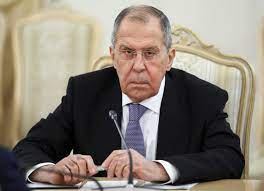Russian Foreign Minister Sergei Lavrov said on Oct. 4 that Russia will “insist” on the full implementation of the agreement struck with Turkey for the ceasefire in Syria’s northwestern Idlib province to hold, Sputnik’s Turkish service reported.
“In the de-escalation region in Idlib, the threat of terrorists continue; it is even on the rise. Moreover, they are in an attempt to attack Russian forces,” Lavrov said during a press conference with Egyptian counterpart Sameh Shoukry in Moscow.
“Because of this, the Russian side confirms the necessity of the agreements between [Vladimir] Putin and [Recep Tayyip] Erdoğan to be fully implemented. Terrorists [in Idlib], foremost militants of the Hayat Tahrir al-Sham (HTS), need to be isolated and eventually neutralized,” he said.
“We will be insistent on the full implementation of the current agreements [in Idlib].”
Turkey and Russia agreed to a ceasefire last year to end a Russian and Syrian army assault on Turkey-backed fighters in Syria’s Idlib region.
While Turkey says it has kept its end of the deal, Russia has been blaming Turkey for not taking sufficient measures against the activities of radical groups in Idlib.
Following his meeting with Putin in the Black Sea resort of Sochi on Sept. 29, Erdoğan said that he agreed with the Russian leader to continue working to find a solution in Syria.
Turkish media outlets quoted him as saying that he had discussed finding a “lasting, final and sustainable” solution to the situation in Idlib.
“We said let’s make an effort to solve these especially through phone diplomacy on the level of leaders (and), aside from that, joint work between our foreign and defense ministers, our intelligence agencies in the following process,” Erdoğan said.
He added that Turkey had kept its end of the deal and expected Russia to do the same.
Neither leader made any detailed statements to the media after the talks, though Putin thanked Erdoğan for the visit which he called useful and substantive.
Duvar English
